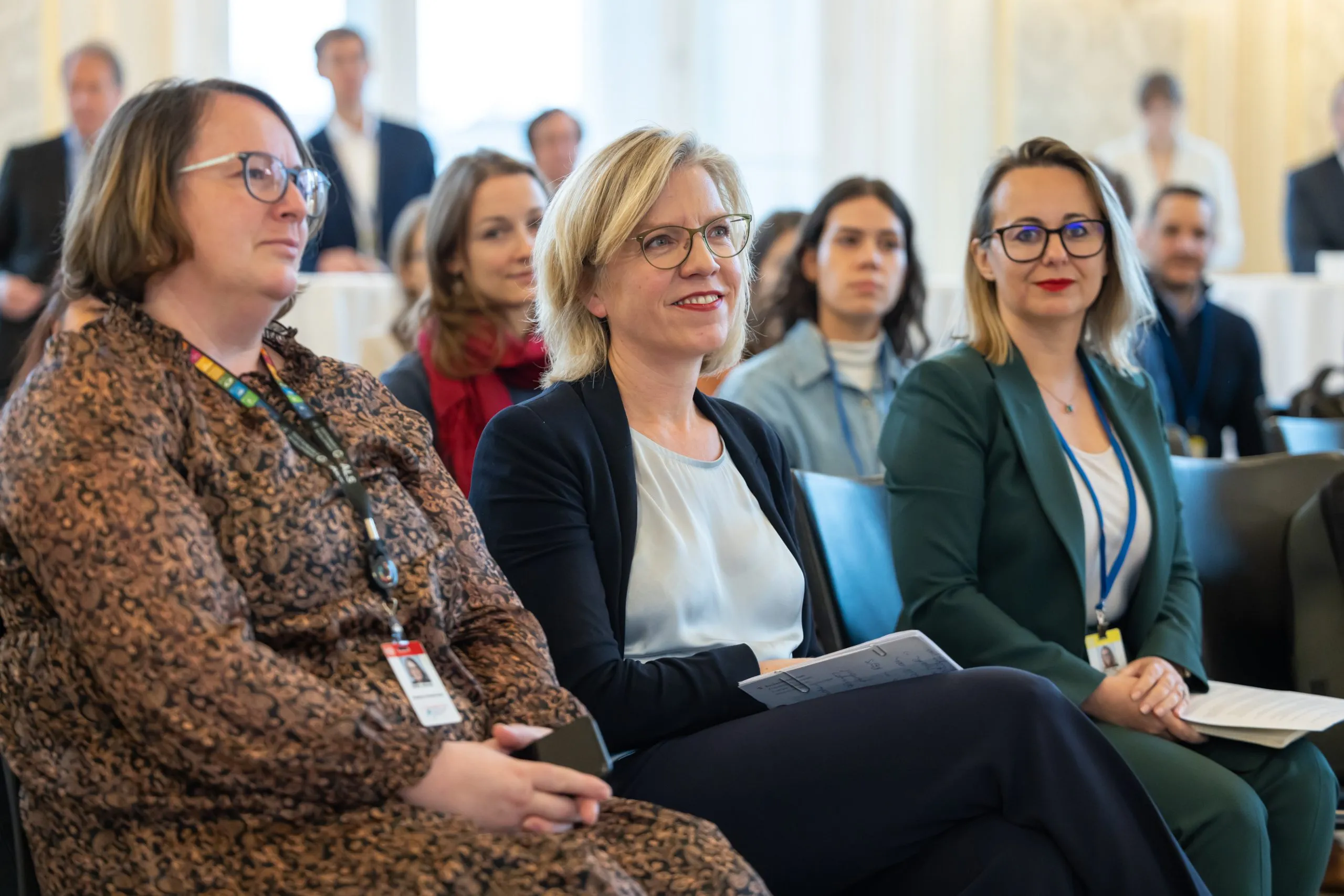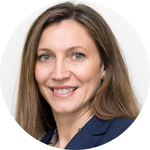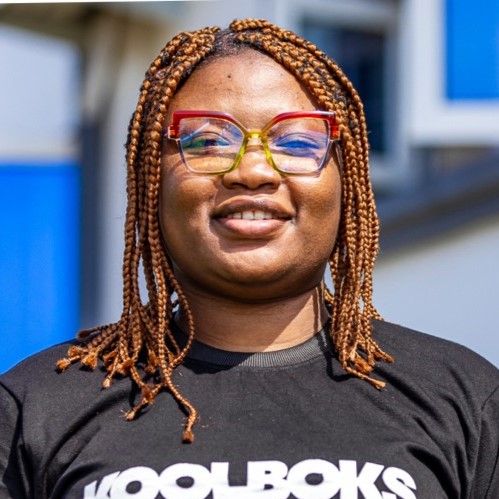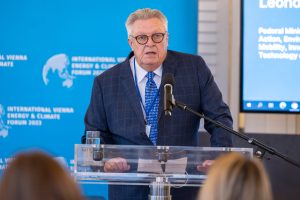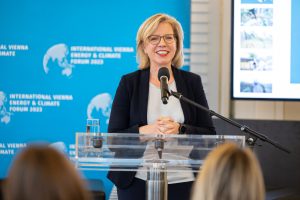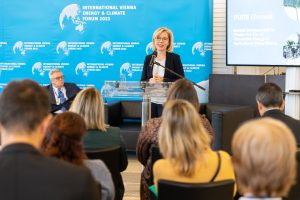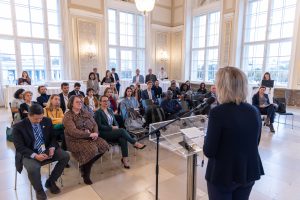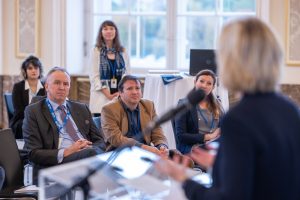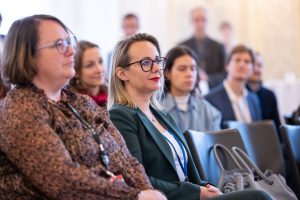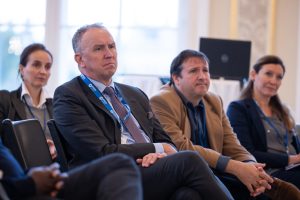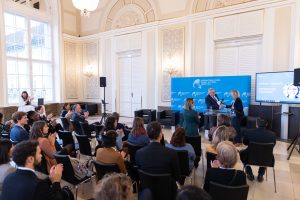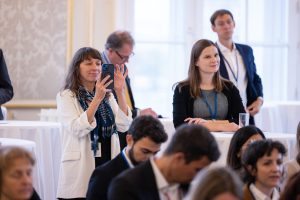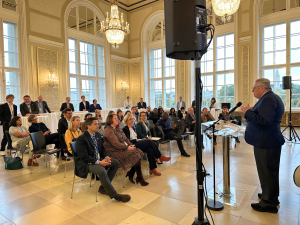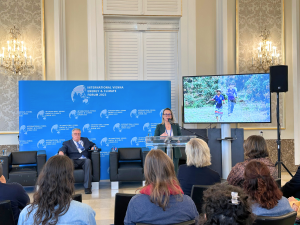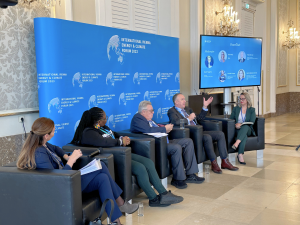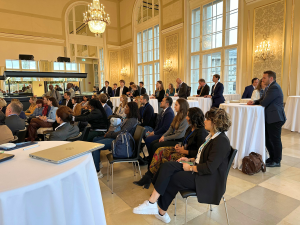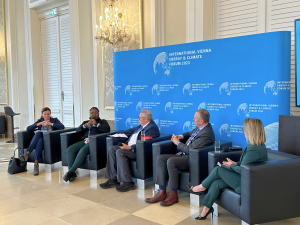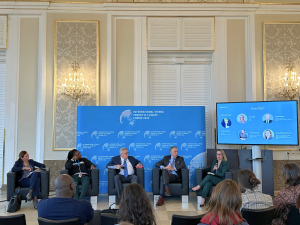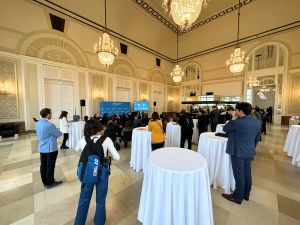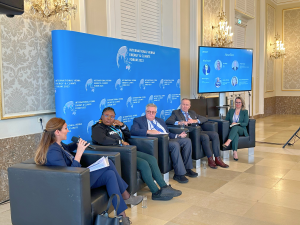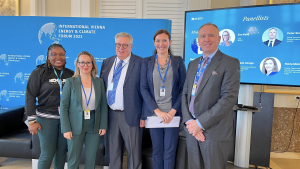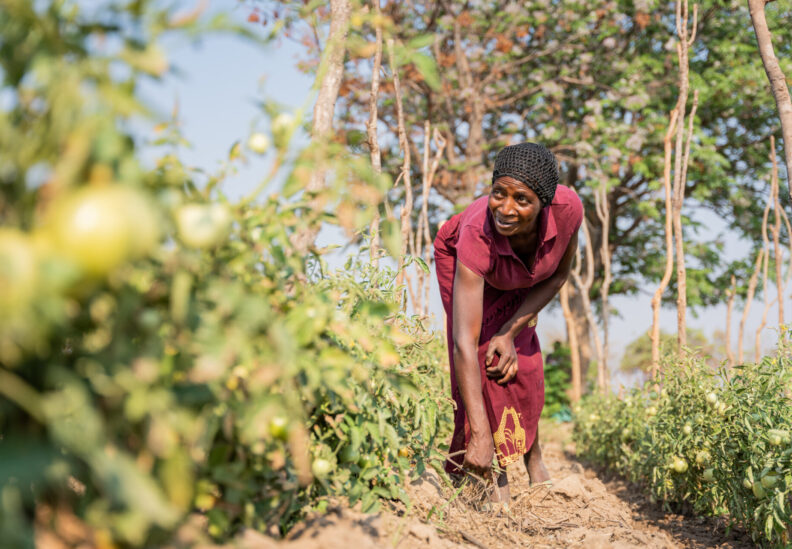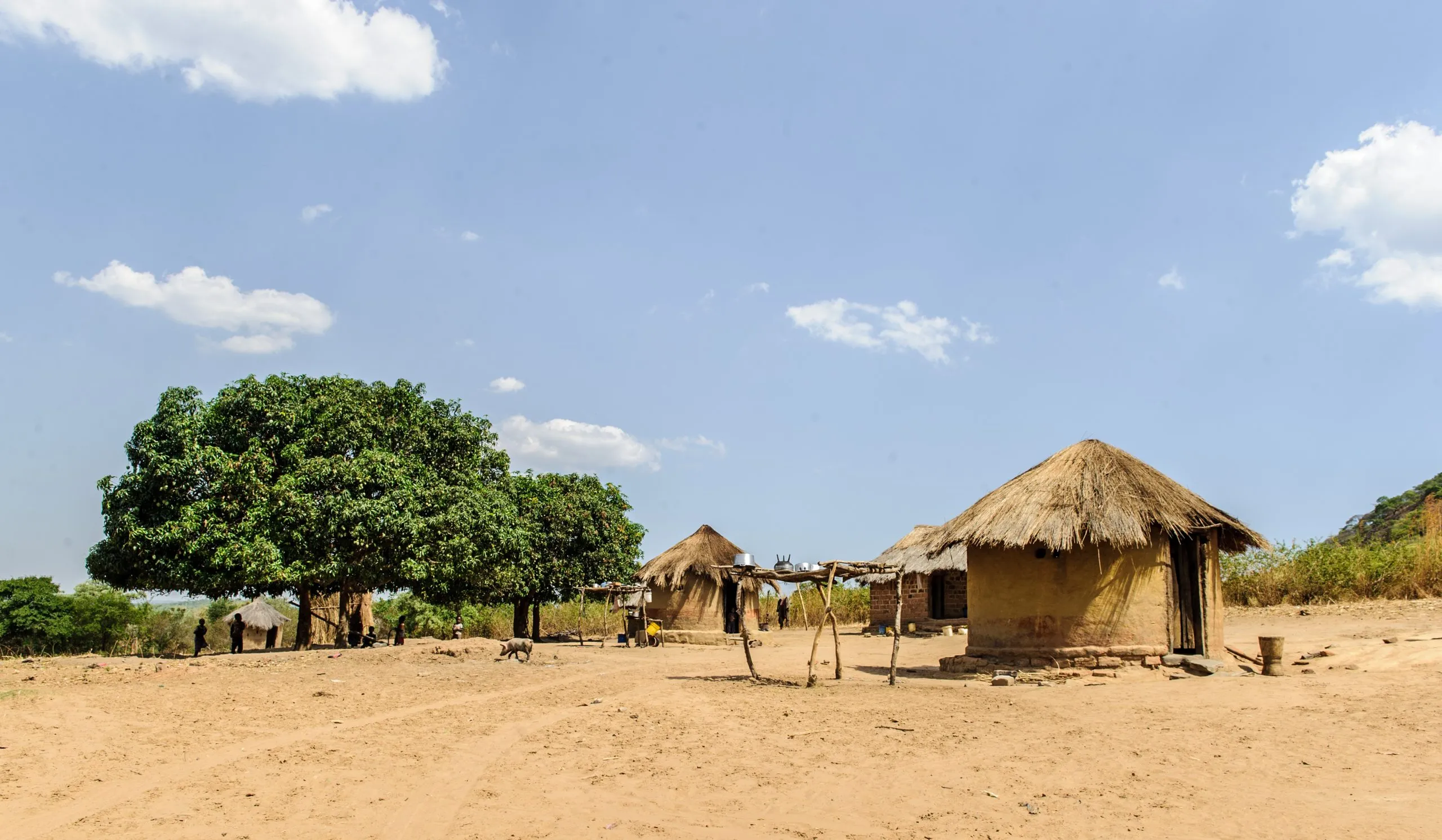Productive use of renewable energy (PURE) offers the opportunity to lock in low GHG emission development pathways for rural areas of countries in sub-Saharan Africa and Asia, improving lives and livelihoods and building resilience to future threats such as the current triple energy, food and finance shock. Standing in the way of scaling up PURE in agri-food are challenges for actors at all levels: scant knowledge of the possibilities on most sides, nascent or early-stage markets for distribution and a lack of local financing solutions. The business environment in developing countries is often volatile, with a lack of coherence in policy, and market information for business plan development is uncertain or unavailable.
Drawing on lessons learned in over two decades of experience in clean energy market development, REEEP has designed a comprehensive response to these barriers – PURE Growth: Market Development for Productive Use of Renewable Energy in Agricultural Value Chains – which brings multi-pronged support to catalyse sustainable markets for renewable energy use in agricultural value chains.
With the renewable energy community gathered in Vienna, home to REEEP’s International Secretariat, we launched this innovative new programme at the International Vienna Energy and Climate Forum (IVECF) 2023 on 3 November.
Leonore Gewessler, Federal Minister for Climate Action, Environment, Energy, Mobility, Innovation and Technology of Austria, gave the keynote speech. “Austria has supported REEEP since 2003 as part of our commitment to limiting global warming in accordance with international climate goals and increasing the ability to adapt to the negative consequences of climate change. We are proud to continue our support for REEEP by funding their new PURE Growth programme,” she said.
The event highlighted REEEP’s in-depth experience in supporting innovative productive use projects in agri-food, which gives us strong insight as to the vitality and potency of productive use interventions in these developing agri-food markets. “REEEP has shifted the market conditions in Zambia in a way that redefined the role of the private sector in increasing energy access in the country as well as how the government collaborates with a range of stakeholders towards joint objectives; we simultaneously pioneered private sector delivery in the country and reached significant socio-economic impact for one million Zambians”, says Eva Kelly, CEO of REEEP.
''Austria has supported REEEP since 2003 as part of our commitment to limiting global warming in accordance with international climate goals and increasing the ability to adapt to the negative consequences of climate change. We are proud to continue our support for REEEP by funding their new PURE Growth programme.''
Leonore Gewessler
Federal Minister for Climate Action, Environment, Energy, Mobility, Innovation and Technology of Austria
A lively panel discussion provided further insights into the needs and opportunities of PURE markets from green finance, energy policy and entrepreneurial perspectives. Joining Eva on the panel discussion were Peter Storey, Global Coordinator, Private Financing Advisory Network (PFAN), Lolade Alonge, Project Manager at Koolboks, a cold storage company operating in several sub-Saharan African countries, and Maria Michela Morese, Energy Team Leader and Senior Natural Resources Officer at the Food and Agriculture Organization of the United Nations (FAO).
Discussing how to facilitate investments in the energy sector in the agri-food systems in the country, Maria Michela says, “Training of smallholders and all the relevant stakeholders – from associations of producers to policymakers and to universities – training needs to be taken into consideration, hand-in-hand with policy support and investment. Even more, it is important to join forces because going to a country and working on the private sector on one side and us working with the policymakers on the other side, it will be even more win-win if we join forces”.
REEEP will organise capacity-building support to local financial institutions to address their lack of experience in working with renewable energies and PURE in the agri-food sector, as well as employing financial instruments such as REEEP’s Credit Guarantee Facility. This is based on similar activities in the SOARING programme, where we are working in partnership with the Renewables Academy (RENAC) to provide training for bank staff in Tanzania and Zambia on topics including PURE technologies and business models, risk assessment and mitigation of PURE investments and strategies for receivables- based lending.
Discussing the challenges SMEs face in scaling up, Eva says “Bankable solutions have been developed in the recent years. The sector relies on significant public support, but investment in the sector has been consistently growing over the last ten years”, “It is agencies similar to REEEP, that have the mandatory tools aggregate large amounts of finance into the smaller, early-stage funding that SMEs require”.
''It is important to join forces at the governmental level involving all relevant ministries, but also associations of sectors and producers, users, consumers, smallholder farmers, universities, etc. If the private sector of a country or the youth of a country is championing, it is the country that benefits. It is important to create a collaborative approach.''
Maria Michela Morese
Energy Team Leader and Senior Natural Resources Office
Food and Agriculture Organization of the United Nations (FAO)
REEEP will facilitate consolidation, analysis and sharing of market information and data on business performance through targeted market stakeholder engagement and a publicly available aggregated data on programme deliverables. The Prospect programme, an open source code developed by REEEP for the Beyond the Grid Fund for Zambia (BGFZ) as the Edison platform, is improving and extending the platform to aggregate, analyse and display data from a wider variety of sources including more standalone connected devices, which will make it suitable for use in the PURE Growth programme.
Peter Storey says “The problem with data and financing is that, when you’re asking the finance institutions to make a decision, they do not have enough data to be able to price your risks accurately. So as an entrepreneur, they tend to get a bad deal. [Entrepreneurs] have to give up too much equity or they get a very high interest rate or a combination of all those things. With PURE, it is able to generate that data and manipulate it in such a way, and make it available to policymakers but ultimately, to investors so they can start making better decisions”
In many markets, large international players and some local businesses have, with the support of public financing, found their place in serving household energy needs, but the energy needs of commercial actors and the potential for adoption of clean energy for powering productive use applications and appliances are less mature and seen as a specialised, high-risk area of business. The PURE Growth programme provides a comprehensive response to these barriers based on REEEP’s understanding of the best ways to support clean energy, built up over 20 years through successful partnerships with stakeholders from the public and private sectors as well as international organisations, civil society, academia and research institutions.
“Instead of talking about countries that are champions, I would rather mention what is the approach that makes them champions. The approach is multi-stakeholder discussion in the country because when we start collaborating with the government in a country to establish a multi-stakeholder working group involving every stakeholder which is relevant to that specific value chain. It is important to join forces at the governmental level involving all relevant ministries, but also associations of sectors and producers, users, consumers, smallholder farmers, universities, etc. If the private sector of a country or the youth of a country is championing, it is the country that benefits. It is important to create a collaborative approach”, says Maria Michela Morese.
''We partner with mini-grid developers so they can distribute our freezers, and the farmers can use our freezers. We make [the freezers] affordable, where farmers can earn money and pay monthly instalments, which gives them access to an economic breakthrough. They can preserve their goods and are able to make a profit using our equipment.''
Lolade Alonge
Business Communications Project Manager
Koolboks
Lolade Alonge shared on-the-ground insights into how Koolboks puts energy to productive use, “We partner with mini-grid developers so they can distribute our freezers, and the farmers can use our freezers. We make [the freezers] affordable, where farmers can earn money and pay monthly instalments, which gives them access to an economic breakthrough. They can preserve their goods and are able to make a profit using our equipment”.
It is clear that PURE in agriculture is vital in ensuring access by all people to safe, nutritious and sufficient food all year round. PURE Growth builds on our experience gained through our 2015-2017 investment portfolio, ‘’Powering Agrifood Value Chains”, also funded by Austria. This Programme Cycle, REEEP’s 10th, was a forerunner in supporting the water-food-energy nexus, comprised of eight high-potential SMEs active in Asia, Eastern Africa and Central America.
“We will enable access to PURE assets for groups that currently are unable to adopt them due to structural issues of the market, contribute to socio-economic development of rural areas and boost local food production and value creation along with mitigation adaptation benefits, and grow the private sector serving the agri-food value chains and leverage the financial and innovation capacity of businesses”, says Eva.
PURE Growth will begin operations in one country and has the potential to be replicated in multiple countries with long-term, far-reaching impact. This approach was proven by the transition from REEEP’s design of BGFZ launched in 2016, which has been expanded into the Beyond the Grid Fund for Africa now operating in six countries with the aim to reach six million people in sub-Saharan Africa by 2028.
Photo above L-R: Elfriede More, Head of Department – International Climate, Environment and Energy Affairs of Austria; Federal Minister for Climate Action, Environment, Energy, Mobility, Innovation and Technology of Austria; Eva Kelly, CEO, REEEP. Credit – Viennamotion.
Gallery (Please right click on the image and open in new tab to see in a bigger scale):
Credit: Viennamotion and Ashiffa Anuar
